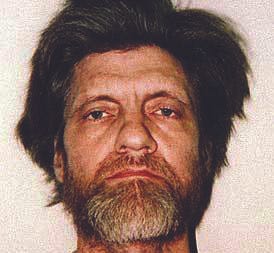The Unabomber terrorist Ted Kaczynski has passed away.
In the mid-1990s, I was beginning a brief career in freelance journalism and studying as a cinema studies major at Australia’s La Trobe University. I was monitoring militia postings on Usenet groups and interviewing counterculture figures online. When the Washington Post published Kaczynski’s 35,000-word manifesto Industrial Society And Its Future this was a turning point that led me to consider the editorial process for content approval. I would take these lessons with me to later edit the Disinformation subculture search engine.
Kacynski’s manifesto drew on anarcho-primitivist thought and his encounters with the shadow organisation aspects of the United States university system. It wasn’t until I began planning my aborted PhD project on pattern languages in counter-terrorism that I learned via author Alston Chase that Kaczynski has been involved in controversial psychological stress experiments in the 1960s. By then I was familiar with both the Central Intelligence Agency-sponsored MK-Ultra experiments in behavioural change and also with the online conspiracy theories that had emerged from fragmentary Freedom of Information Act disclosures. Chase’s research suggested that some terrorists could emerge as political extremists from state-sponsored, authoritarian-like experiences.
A variant of this specific hypothesis emerged in the post-September 11 literature of the sub-field of critical counter-terrorism studies—that blamed the national security state for the pathogenesis of terrorism. By then it had also become a norm to follow the Washington Post’s example and to publish terrorist manifestoes freely online. Kaczynski had cast a die for his less intellectual successors who were often identitarian or white nationalist in their ideological orientation.
The late Feral House publisher Adam Parfrey published Kaczynski’s later writings. I knew Parfrey directly: he played a pivotal advisory role in The Disinformation Company Ltd’s book publishing business in the early aughties. I interviewed Parfrey by phone for Newcastle’s This Is Not Art and National Young Writers Festival about small press publishing. Although we last exchanged emails several weeks before his death, I regret that Parfrey and I never spoke about why he published Kaczynski’s later writings. It was an obvious but a missed research opportunity.
After completing my PhD in April 2020, I kept several folders open on possible, new material to work on. One folder was on Kaczynski. I noted that his book Anti-Tech Revolution was available on Amazon’s Kindle Unlimited. His book Technological Slavery was pulled from Kindle distribution but then showed up on the Z-Library shadow network. A graphic novel of Kaczynski’s manifesto also surfaced.
I thought several times to write to Kaczynski and to ask him about his anarcho-primitivist worldview. Now, I’ll never get the chance.
****
Thanks for reading this Substack newsletter. Check out my professional academic website, Academia.edu public profile, and Twitter account for more.



